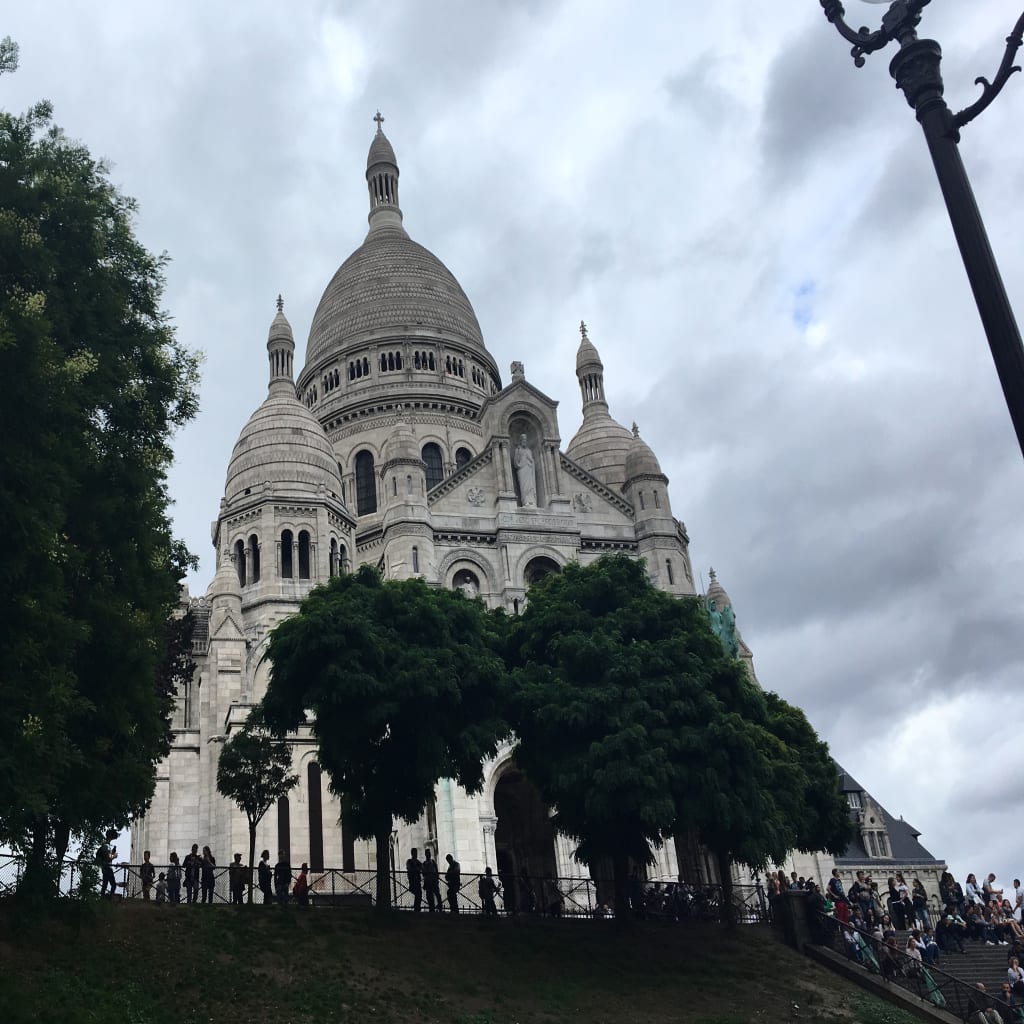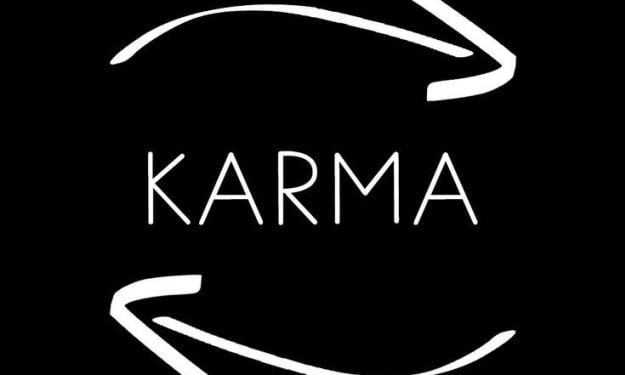You Won’t Die in Paris from Anxiety
It's okay not to always be okay.

The sky had darkened, creating a beautiful ashy canvas for burnt orange street lamps and neon signs to ricochet off. Standing in the middle of it all, I began shaking, hyperventilating, and heaving next to a taxi rank.
I don’t remember what ignited my affection of Paris, but I recollect never discussing it because Paris had become prone to social expectations created by everyone my age—the expectation, being, to love Paris. It was the place for coming-of-age stories. A generation’s first unaccompanied trip to Europe—to be drenched in an ever predictable scene of city lights, florally-decorated balconies, champagne, and the euphonious sound of French school children playing in the street. For me, Paris wasn’t that place, nor a ‘beautiful city.’ It, instead, was the place that I still wanted to desire when I ‘grew up.’ I wanted to love Paris in my early twenties, and equally in my late eighties. I didn’t want its perceived glamour because, having been there before, I had experienced the unwelcoming surge of dirty streets, pickpockets and swarming crowds.
What I desired was to work rigorously—the type of work that’s disguised as passion, and to one day work backstage at the Moulin Rouge alongside Atelier Mine Barral Vergez, or in a renowned fashion house. I wanted to spend long hours handling fine fabrics and crying into rolls of Calico behind discarded mannequins. Unashamedly, it was a pressure sold to me as ‘success’ that I lived for, and still do in ways. Like many other creatives, we exist within the disjunction of our education and a new type of future. There’s a glorification in overworking until we hit the inability to decipher who we really are outside of our working selves. We become stuck in a vicious cycle telling ourselves that we’re not doing ‘real work’ yet. And a fear of failure, a fear of missing out and the suffocating competition around us sets in and results in a high functioning anxiety.
When I was eighteen and only five months short of starting art school—or ‘the beginning of my life,’ as I had once referred to it as—I was in Paris on a school art trip. It was my second time in the city, and I still believed that Paris was exclusively mine. Succumbing to a propensity to succeed, I overworked. Exhausting myself all the whilst becoming increasingly tired from long walks in the city heat, and a slight deprivation of water and regular meals, I fell ill. I could no longer function. I could no longer produce infinite pages of work. Alas, I couldn’t go shopping the final day. I became scared and angry with myself. I was away from home.
Anxiety tendencies had always resided within me, but had not yet established themselves as anything of major concern. From that second trip to Paris until the start of art school nearly five months later, things were changing. Small incidents that I barely remember came together before combusting, and I had my first panic attack alone in the wild—in the middle of one of London’s busiest train stations. Provoking distress, I unintentionally got onto the wrong train home. This led to the surfacing of a latent anxiety.
At art school that following September, the pressure of being at one of the world’s greatest art institutions had me silently struggling with my own personal demons. Yet, I still desired the allure of Haute Couture fashion ateliers and backstage shows, refusing to acknowledge it, but understanding that I was slowly slipping. I was feeling exposed and vulnerable at a time whereby society had inadvertently taught me to be ‘grown up’ and free. I had been released into an abyss of anxiety.
It’s scary. You can’t always grasp whether the choices you make are entirely your own. You can be stuck in between knowing whether you’re avoiding something because you’re apathetic about the situation, but feel compelled to take part. Other times, you think your anxiety has been sparked and, thus, it feels easier to avoid the situation. You convince yourself it’s the latter, blaming your choices on anxiety because it’s either easier, or because that’s all you’ve come to know, even when it’s clearly not. Like the time I fell ill with a virus one New Years Eve, I had to be taken home, and in convincing myself it was the effects of anxiety making me ill, I still dismissed the idea of seeking medical help for days.
One of the worst feelings is having an immense desire to want to be somewhere and to absorb all of its textures, but to surrender when the mother of all panics sets in.
The year I turned twenty-four, I came to terms with my second trip to Paris being what ignited the almost detrimental state that my anxiety would become in the following years. Until that point, I had avoided returning, despite a longing for the city and having my father mention his desire to see the Notre Dame since our first visit in 2005. It was now the time to challenge what I was avoiding, and if therapy had taught me anything that worked, it was to expose myself to these fears.
I designed a trip on the impulse to recreate the past, and committed myself to lessening the burden. I wanted to let go of the Parisian ghost that had been following me around since 2011, unmindful of the pressure I was putting on myself. I wanted two things on this trip: to drink coffee at the Café de Flore, and to become lost within the bookshelves at Shakespeare and Company.
On an autumnal Tuesday, I cascaded along the Eurostar carriage, following the scent of sharp coffee and trying not to fall into the laps of unsuspecting passengers. I had my coffee, and seized the latest issue of Elle Decoration that had been abandoned by another passenger in the Eurostar Cafe. My luck was in. The trip was already proving perfect.
As we entered the Gare du Nord through the dirty white, graffiti-clad towers that lined the entrance to the station, I had ignited minor panic upon wondering if we were entering the wrong station. Though impossible, it otherwise wouldn’t be more than a taxi or bus journey to get where we needed to be. Nevertheless, such a mistake wasn’t part of my original plan and, thus, I was overcome with a tingling sensation and uncontrollable thoughts.
On exiting the station, and most certainly the correct one, I laughed myself calm. I walked out onto bakery-lined streets pulling my perfectly compact suitcase behind me towards the hotel. And upon nearing the hotel, the Sacre Coeur towered above us and I couldn't wait to see it up close for a third time. The room wasn’t ready and, in my mind, that meant that we were stranded in Paris with nowhere to stay. I told myself that I would have to walk through the night and into every hotel searching for a room. In reality, it was a forty-five minute wait with free juices and coffee. We set ourselves up in the room, and after dragging my legs up hundreds of steps around Montmartre, I was standing before the Sacre Coeur under a watercolour of blue and purple forming the sky.
The first hours were thrilling, but this is where I split into two versions of myself. There is one part that sees the charming window displays, decadent pastries, tiled shop-fronts and the smell of fresh rotisserie chicken spinning at the side of the road. The other part—the anxiety part—fails to absorb the things that I am passing. My mind becomes contaminated, incomprehensible thoughts and fears entwine with logical thoughts. What could happen hypothetically becomes a highly anticipated eventuality.
After a dinner that I forced myself to get through, I found myself standing next to a taxi stand heaving. I only became self-aware after that incident had occurred and I was somehow walking back to the hotel. I don’t remember much of that evening, only that I struggled through more wonderful times, noting all the florists and cheese shops around me. I recall three things clearly: making copious amounts of tea in the room that evening, crying and checking whether I could exchange my ticket home for one the next day. I discredited my strength. I kept associating this trip with my last.
A new day came and I was by no surprise still alive and puffy-eyed with a zeal for the day; not because I had resolved last night’s ordeal, but as a coping mechanism. I was going to “fake it till you make it.”
I took several candid photos of book sellers, locals in the laundrette and people crossing the street in high-waisted jeans and oversized bags. I bought second-hand books and was in constant search for public toilets, which all seemed to have broken locks or no soap. I ate an entire bag of Madeleines whilst looking at architecture, and walked through the Red Light District with my parents—something I’ll never feel old enough to do with them. Most importantly, I walked into the Galleries Lafayette just to look up at the ceiling and left immediately. This was a pivotal moment for me. I was once a person who would have to explore every floor and every crevice of such a place, in order to feel worthy enough to say that ‘I’ve been there’ or ‘I’ve done that.’ This year, I said ‘fuck it,’ and I looked up at the most beautiful ceiling and walked out past the illustrious beauty counters of Tom Ford and Yves Saint Laurent, away from my calling—the fashion floors—and said thank you to the security guard who opened the doors upon exiting.
The raw reality, however, was that every great moment was laced with unexplainable fears. I would panic and enjoy Paris simultaneously. I would eat fragments of my meals slowly and pull apples out of my bag, taking a bite every ten minutes until I was convinced that I was full enough not to pass out in the middle of the street.
On the journey back from Paris I was reading a magazine that I had picked up. It featured a fashion editorial with images taken in front the Café de Flore. It reminded me of the one thing I set out to do and regrettably didn’t. Then I thought some more. I drank only two coffees on this entire trip—this perhaps hurt me the most. Due to its stimulant nature, anxiety sufferers are advised to avoid caffeine. I, however, have found regulated amounts of coffee have become a relief method, and perhaps the one consistent entity that I can take from comforting situations and channel towards distressing ones. But I had convinced myself that caffeine would induce some form of paranoia; despite a more stress inducing trip to New York City whereby I refused to hold back on the coffee. Perhaps coffee in New York is somewhat more unavoidable?
The single, only rational fear I should have had in Paris was whilst eating, albeit very tentatively, one of the best filled baguettes I have ever had at Le Départ Saint Michel. A cascade of sirens, riot police and ambulances passed the cafe and I never found out why. But why aside from at this time, couldn't I toughen up and appreciate this trip to its fullest when I was never in any danger? Why did I cave into fear? Why did I cry? Where did my spontaneity go? Why did I avoid so much? Why didn’t I drink more coffee?
The immense pressure of trying to make this time ‘better’ was doing the reverse. I later read something I had written and had forgotten about: “It's okay to be scared, and to cry all night in a Paris hotel. It happened because I put pressure on myself, telling myself that I couldn't and shouldn't cry all night in a Paris hotel.”
We’re never going to be able to recreate the good memories entirely—the textures, the sounds, the feeling at the pit of your stomach that you just cant explain, and we may not be able to ‘fix’ the bad ones. I went back to Paris for what I thought would be the last time to ‘get things out of my system,’ and maybe now I will go back again, even if not for another thirty years.
Would I have wanted to stay another day?
Yes and no. I would have walked the grounds of the Grand Palais and revisited the Champs Élysée. I would have had my coffee at the Café de Flore and sat under a paining at the Musee d’Orsay. I would have eaten a sweet almond macaron with thick chocolate ganache and I would have spent more than ten minutes in Shakespeare & Company. But I have new memories. I have beautiful photos, and I gained inspiration. Most significantly, I challenged myself in situations where I thought I couldn’t. I went where I never thought I would go again. My predicament isn’t Paris, it is an issue that lies within me and until I find peace with who I am, I may never feel settled. Telling myself that the problem was Paris was merely sentimentalism decorated as therapy.
You won’t die in Paris from anxiety.
About the Creator
Marianna Michael
Fashion-Writer, screenwriting, Art-Directing, daydreaming and Caffeine-consuming.






Comments
There are no comments for this story
Be the first to respond and start the conversation.